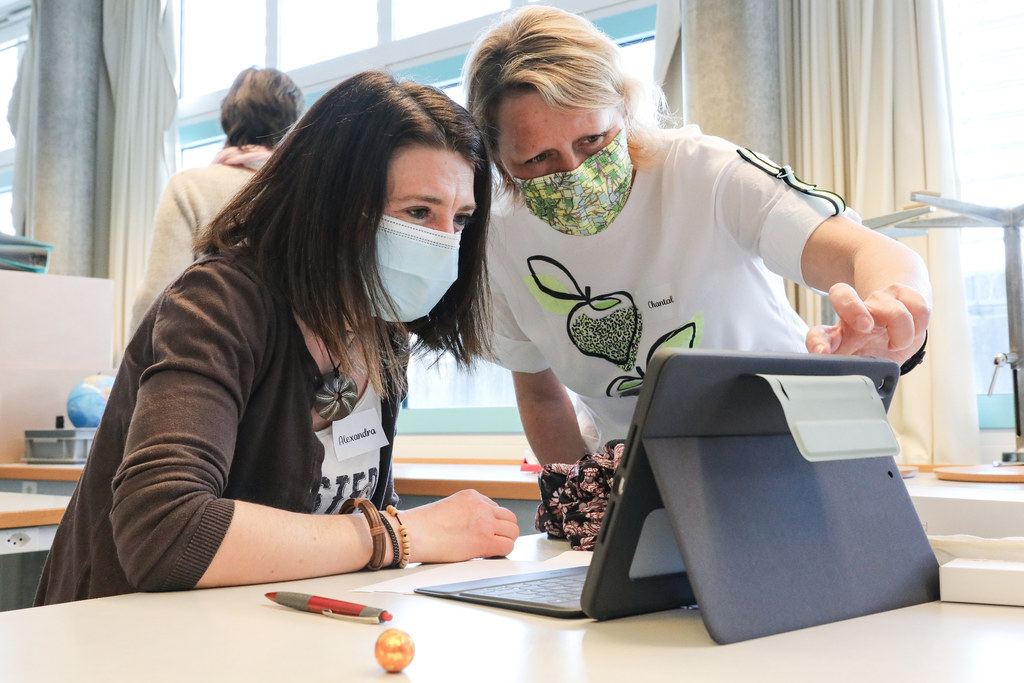Advice to teachers and sections
Partnerships between teaching advisors and faculty members are more likely to provide adequate and timely support to the teaching staff. The resources to advise teachers are blended, as they combine face-to-face meetings with relevant videos and documents.

Teachers
Each year, the Teaching Support Center (CAPE) works with hundreds of teachers and teaching teams on an individual basis to respond to their teaching and learning inquiries.
CAPE works with teachers who explore the use of new technology in their practice or decide to switch up their instructional approach. CAPE also provides support to sections in assessing academic cycles, namely Bachelor and Master Programmes.
CAPE draws on counselling strategies to work with teachers who are building their confidence to teach and assess their pedagogical practices.
Tenure Track
A three-phase model to support new Tenure-Track Assistant Professors (PATT) establishes a partnership to work with young researchers to build their teaching dossier based on evidence of their teaching (Just-in-time teaching (JiTT) a pedagogical strategy that uses feedback between classroom activities and work that students do at home, in preparation for the classroom meeting).
Sections
Support to sections for evaluating their programs includes discussing, formatting and creating surveys. Questions are adapted to the sections’ needs and concerns.
CAPE sends the surveys to students and Alumni in order to have a snap-shot of how students assess their EPFL education. The surveys explore Alumni’s perception of the contribution of their EPFL education to their current job. CAPE takes into account their specific profiles and current professional tasks. The surveys also ask participants to self-assess the state of specific technical knowledge and professional skills. CAPE analyses the results and drafts reports which are then fed back to the sections to build evidence-based solutions.
Useful links
Contact us
Teaching Support Center (CAPE)



